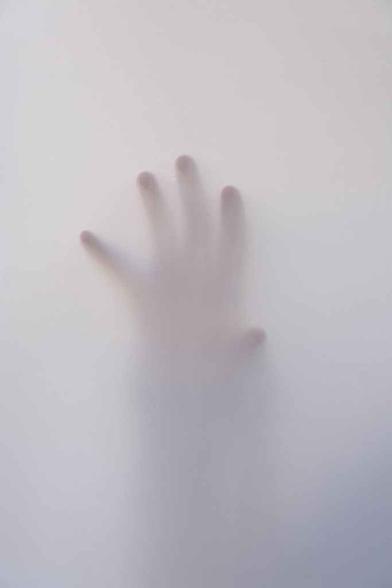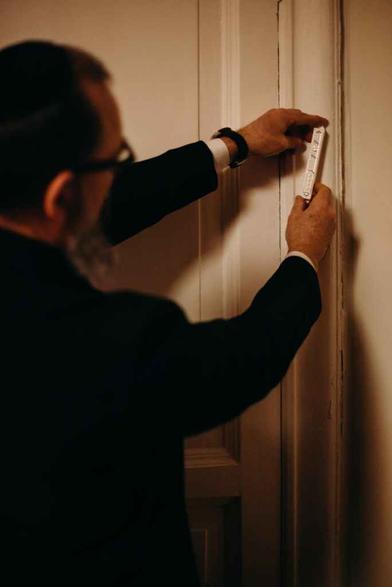Dybbuk
Also spelled dibbuk, meaning “to cling,” “to cling,” or “adhere.” This entity is a malicious, restless spirit of a dead person/spirit that “clings” to or possesses the body of a living person or is the dislocated soul of a dead person.
This isn’t a good-natured ancestral ghost. But an earthbound soul that’s been denied peace & seeks refuge (or revenge) within a human host. It supposedly leaves the host body once it has accomplished its goal. Sometimes after being exorcised.
The idea of the dybbuk has roots in Jewish mystical traditions. Specifically the Kabbalah, which gained prominence in the 16th to 18th centuries in Central & Eastern Europe. Earlier accounts of possession, like those given by Josephus, were of demonic possession rather than that of ghosts.
Traditionally, dybbuks tended to be male spirits. Because women couldn’t become dybbuk, they didn’t participate in gilgul. In Hebrew, gilgul means “cycle” or “wheel.” In Kabbalistic esoteric system, gilgul is a concept of reincarnation or transmigration of souls.
Sometimes these spirits were said to possess women on the eve of their weddings. Typically, in a sexual fashion by entering the women through their vaginas. Men & boys could be possessed as well.
In traditional Jewish communities, the idea of the dybbuk served as a socially accepted way of expressing unacceptable urges. Including sexual ones.
Within Jewish mysticism & folklore (particularly in Kabbalistic traditions) protective practices were also used to ward off malevolent spirits. One such practice involves attaching a mezuzah to the doorposts of a home. A mezuzah is a piece of parchment/paper written with a specific Torah verse.
Photo by cottonbro studio on Pexels.com. This is a mezuzah being hung on a doorpost.While the mezuzah mainly serves as a reminder of faith & adherence to God’s commandments. It’s also viewed as a protective amulet against harmful spirits, including the dybbuks.
The Zohar, a foundational Kabbalah text, suggests that a properly affixed mezuzah can prevent such entities from entering a home. Also, Jewish folklore includes accounts where neglected or improperly maintained mezuzah were believed to make homes open to dybbuk possession.
In Lurianic Kabbalistic view (a major school of Jewish mysticism), it’s believed that every soul undergoes a process called gilgul (reincarnation) until it has made good all its spiritual flaws & completed its divine mission (tikkun).
A dybbuk is usually the soul of a great sinner. Someone who failed so utterly in life that their soul is deemed unfit for reincarnation or even for the stillness of the afterlife.
Because the soul can’t find rest or transition into a new body, it’s condemned to wander the world, a spiritual refugee. this limbo state between death & full divine judgment is sometimes referred to as the Barzakh in certain mystical texts. The dybbuk, being trapped & tormented, lashes out by invading a living host.
The possession is an act of desperation or malice. Once a dybbuk possesses a person (usually a woman, but not always), the host’s voice may change, becoming that for a dead person. Sometimes they speak in an unfamiliar language (it’s unfamiliar to the speaker/possessed person), or they recite profound, sacred texts they’ve known or seen.
The dybbuk speaks through the host. Often they reveal the sins that condemned it to wander or it accuses the host’s family of a concealed transgression. The host often suffers intense physical & mental anguish.
Because the dybbuk is a spiritual entity with a soul, its removal is an intensely religious act, an exorcism, that requires the intervention of a learned & righteous rabbi. Usually a rabbi is versed in Kabbalistic practices. The ceremony is solemn & ritualistic.
The rabbi, with a quorum of 10 men (minyan) & often holding a shofar (a ram’s horn), tries to reason with the dybbuk, at first, urging the distressed soul to leave in peace to leave in peace & accept its divine judgment.
If the dybbuk resists, the rabbi must use the power of sacred names & oaths. The rabbi may threaten the spirit with complete banishment from the Jewish people (a harsher spiritual punishment than eternal wandering).
The essential moment is when the rabbi calls upon the Divine Name to compel the dybbuk to exit the body. Often through the host’s small toe or finger so as to not cause the host any permanent harm.
As the dybbuk leaves, the shofar is usually sounded to break the spirit’s hold & symbolizes the final severance. The exit is then sealed with a prayer.
The Possession (2012) is a supernatural horror centered around the idea of a dybbuk. The story follows a young girl who becomes possessed by an evil spirit after finding an old box at a yard sale. Jeffrey Dean Morgan & Kyra Sedgwick star in this movie.
One-Time Monthly YearlyMake a one-time donation
Make a monthly donation
Make a yearly donation
Choose an amount
$1.00 $5.00 $10.00 $1.00 $5.00 $10.00 $5.00 $10.00 $15.00Or enter a custom amount
$Your contribution is appreciated.
Your contribution is appreciated.
Your contribution is appreciated.
DonateDonate monthlyDonate yearly
#16thCentury #18thCentury #Afterlife #Barzakh #CentralEurope #Commandments #Dibbuk #Dybbuk #EasternEurope #Exorcism #Ghosts #Gilgul #Hebrew #JeffreyDeanMorgan #Jewish #JewishFolklore #JewishMysticalTraditions #Josephus #Kabbalah #KyraSedgwick #LurianicKabbalah #Mezuzah #Quorum #Rabbi #Reincarnation #Shofar #Sinner #Soul #Spirit #Tikkun #Torah #Weddings #Zohar




